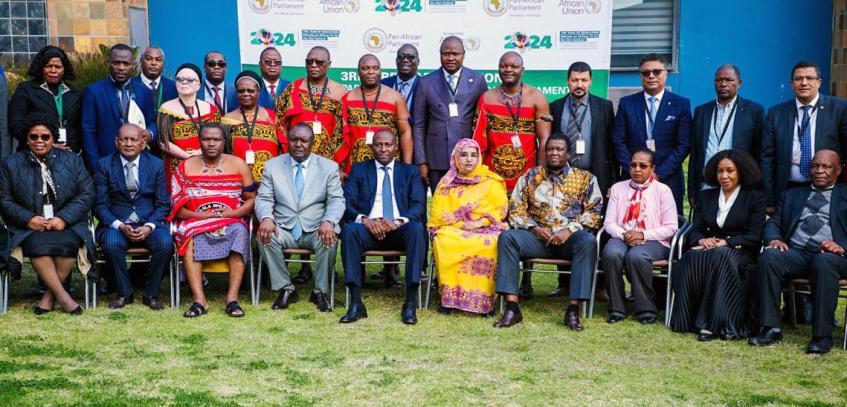H.E. Russell Dlamini, Prime Minister of Eswatini, urged African nations to adopt home-grown democratic systems and embrace the philosophy of Ubuntu. Addressing the Pan-African Parliament Plenary, he stated that the prevalent Western democracy has not entirely benefited Africa and its people.
Speaking at the 3rd Ordinary Session of the 6th Pan-African Parliament in Midrand, South Africa, Dlamini focused on "Unpacking the Issue of Pan-Africanism" and the role of the Pan-African Parliament. He highlighted that since May 1963, when 32 African heads of state met in Addis Ababa to establish the Organisation of African Unity (OAU), later the African Union (AU), the vision was always for a united and self-determined Africa. The OAU Charter emphasized freedom, equality, justice, and dignity as essential for achieving Africans' aspirations. Pan-Africanism aimed to promote understanding and cooperation, transcending ethnic and national differences, rooted in African socialism and unity.
H.E. Dlamini noted that the foreign democratic system had failed to bring Africa peace, stability, and prosperity. He pointed out that it often leads to frequent leadership changes, partisanship, and instability, recycling leaders without transforming societies. Instead, he called for home-grown systems that unite Africans and focus on growth, development, peace, and unity.
He cited Eswatini's unique blend of western and traditional democracy, the Tinkhundla (county) system, as an example. This system, established in 1978 under King Sobhuza II, combines Western democratic elements with traditional practices, promoting non-partisan, county-level elections, and collective national leadership. Dlamini asserted that this system has brought stability and respect for human rights, empowered women, and could serve as a model for other African nations.
Dlamini also emphasized Africa's need to reject foreign concepts disguised as human rights that do not align with African values. He stressed the importance of preserving core values such as family, respect for human life, and dignity to safeguard African identity.
He urged Africa to capitalize on its natural resources, such as fertile soils, minerals, and a youthful population, protecting them from exploitation. Dlamini advocated for adding value to raw materials to retain wealth within the continent and highlighted the need to educate and empower young people with skills, critical thinking, and innovation to solve Africa's problems.
Former Pan-African Parliament member and South African MP, Professor Mathole Motshekga, also addressed the delegates. He called on African Parliamentarians to promote Pan-Africanism and the African Renaissance at the grassroots level, suggesting that these concepts could significantly contribute to the continent's growth and development if widely adopted and implemented.
-Ends-








